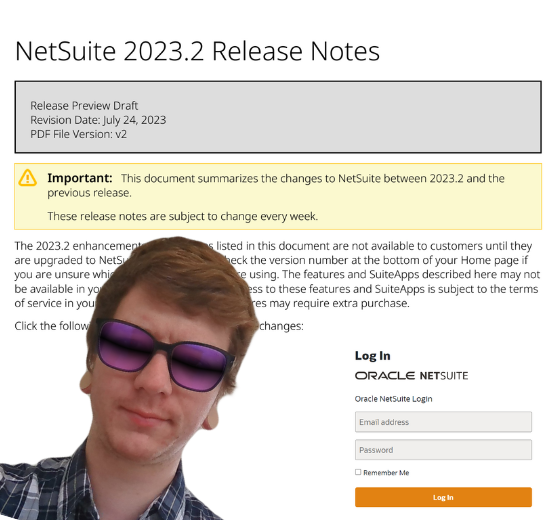Software solutions to facilitate smart business operations have become a necessity among many organisations in recent years, and often optimum functionality of business processes is the key driver for implementation. Unfortunately for those that invested in systems that have, or will soon be, at the end of their product life, this means the retraction of support or updates – so they need to decide when the right time is to migrate to a new solution. It is an investment and commitment not to be taken lightly, but a delay will likely hinder business efficiency and growth and could also mean the business is no longer compliant.
For many organisations that hold swathes of customer or user data – including not-for-profits, member associations and public sector bodies – compliance is absolutely crucial. From keeping customer data and an establishment’s reputation safe, through to avoiding penalties or optimising efficiencies through enhanced data management, a focus on compliance is a legal requirement that can also hold business benefits.
Security is a key consideration in the compliance mission
With many organisations utilising Customer Relationship Management (CRM) systems, the integrity of system security is a major consideration. Cloud-based solutions hold the key to security in 2021 – not least because updates are automatic – and continued increasing adoption of them is testament to the fact that concerns around storing data in the cloud is ebbing away. Businesses need to take compliance very seriously, particularly with the emergence of mandatory regulatory developments such as General Data Protection Regulation (GDPR). This affects organisations of all sizes and in all sectors, and imposes strict requirements on the collection, storage and management of customer data. Implementing or upgrading to a cloud-based tool that offers enhanced security is the most effectual way to become, or remain compliant.

Those who are using on-premise or internet-based systems that may be nearing the end of their product life should carefully consider the effects of this on their business and security capability post support. Migrating to a solution such as Microsoft Dynamics 365, which is powered by Microsoft Azure, means automatically benefiting from many security features. These include industry standard encryption protocols, protection from malware threats, multi-factor authentication for access management and secure networks and firewalls. With the provision of such robust cyber security, organisations using the latest system will have total peace of mind that compliance is covered. It’s often helpful for customers to consider the difference between an on-premise and cloud solution in this way – Microsoft has a whole team dedicated to monitoring security, would that be possible for your business to achieve in-house?
Furthermore, with the remote working situation caused by Covid-19, the issue of security has never been more prevalent. Having role, record or field-based security means parameters can be set to ensure the right people can access specific records relevant to their role. When researching solutions to migrate to, it’s important to ensure total control of accessibility is offered – based on what any operative needs to know in order to fulfil their tasks – and that no irrelevant or inappropriate access is permitted. In organisations such as those in the public-sector, this kind of control is invaluable in maintaining and managing compliance, and crucial to avoiding breaches that may cause harm to reputation, public dissatisfaction or even legal recourse as a consequence of data mismanagement.
Achieving and maintaining compliance efficiently is facilitated by cloud solutions
The multitude of processes needed to facilitate compliance can present a real headache for organisations – but migrating to the latest cloud-based solution means all this is automated. Not only is this pain point negated, but also ongoing efficiencies are created from the outset. Once initial configuring of compliance, such as assigning permissions to establish appropriate access to data records, or creating policies about potential compliance issues, is set up – a task that is part of our solution design and implementation service – the compliance measures can be easily maintained. Any threats such as malware activity to admin permission abuse can be identified early on.
For those considering migrating from a Microsoft product that is nearing the end of its product life, or switching from another brand’s legacy system, many of the features available with Microsoft Dynamics 365 are very appealing and invaluable when it comes to compliance. The sensitivity labels feature in Microsoft 365 (previously known as Microsoft Office) allows classification and protection of data without compromising productivity or collaboration capacity – vital in today’s remote workforce scenario. Documents featuring these sensitivity labels can be viewed in Microsoft Dynamics 365, when stored in OneDrive. The solution’s retention policy means the risk of a security breach is even further reduced with the capability to proactively retain or delete content, or specify a retention period for data while allowing the data to still be edited or worked on within that retention period. This can be applied in Exchange Mail, SharePoint sites or OneDrive accounts in Microsoft Dynamics 365, and can be vital in helping with both industry compliance regulations, and also internal policies.

And in a world where monitoring workplace behaviour – whether operating an on-site or remote workforce – is a key compliance area, any organisation operating a system that will not do this effectively and efficiently could land themselves in hot water. Microsoft Dynamics 365 facilitates fast detection of inappropriate communications. This could be instances of harassment, profanity or the sharing of sensitive information either inside or outside of the organisation. There is a pre-defined policy template which scans for policy breaches that can then be flagged up to designated reviewers, who can investigate further to ensure organisational standard are upheld.
It is clear that the world of compliance presents a complex landscape with many elements, and achieving and maintaining compliance can be a minefield to navigate. Organisations using systems that may soon be out of date – such as Dynamics CRM 2011 or SharePoint Server 2010 – should be planning an upgrade now. Not only will they be able to capitalise on heightened security, controlled accessibility and cutting-edge functionality, but also ensure compliance isn’t compromised.
To find out more about the benefits you could gain from a migration to Microsoft Dynamics 365, complete our contact form and a member of our dedicated Microsoft team will call you back. You can also find further information about our Microsoft solution services here.
Keep reading

What is a NetSuite implementation partner? How do you choose one?

Technology fit for total customer service in 2024

Retail and wholesale distribution: how to improve supply chains

Ditching Sage 1000: what you need to know from businesses that have done it

6 ways AI-ready Microsoft Dynamics 365 helps chartered associations serve members

6 retail and wholesale distribution challenges and how NetSuite solves them

The most exciting features in Microsoft Dynamics 365 2023 Release Wave 2

How to manage a new NetSuite Release: one expert's update process

What’s in NetSuite Release 2023.2?

